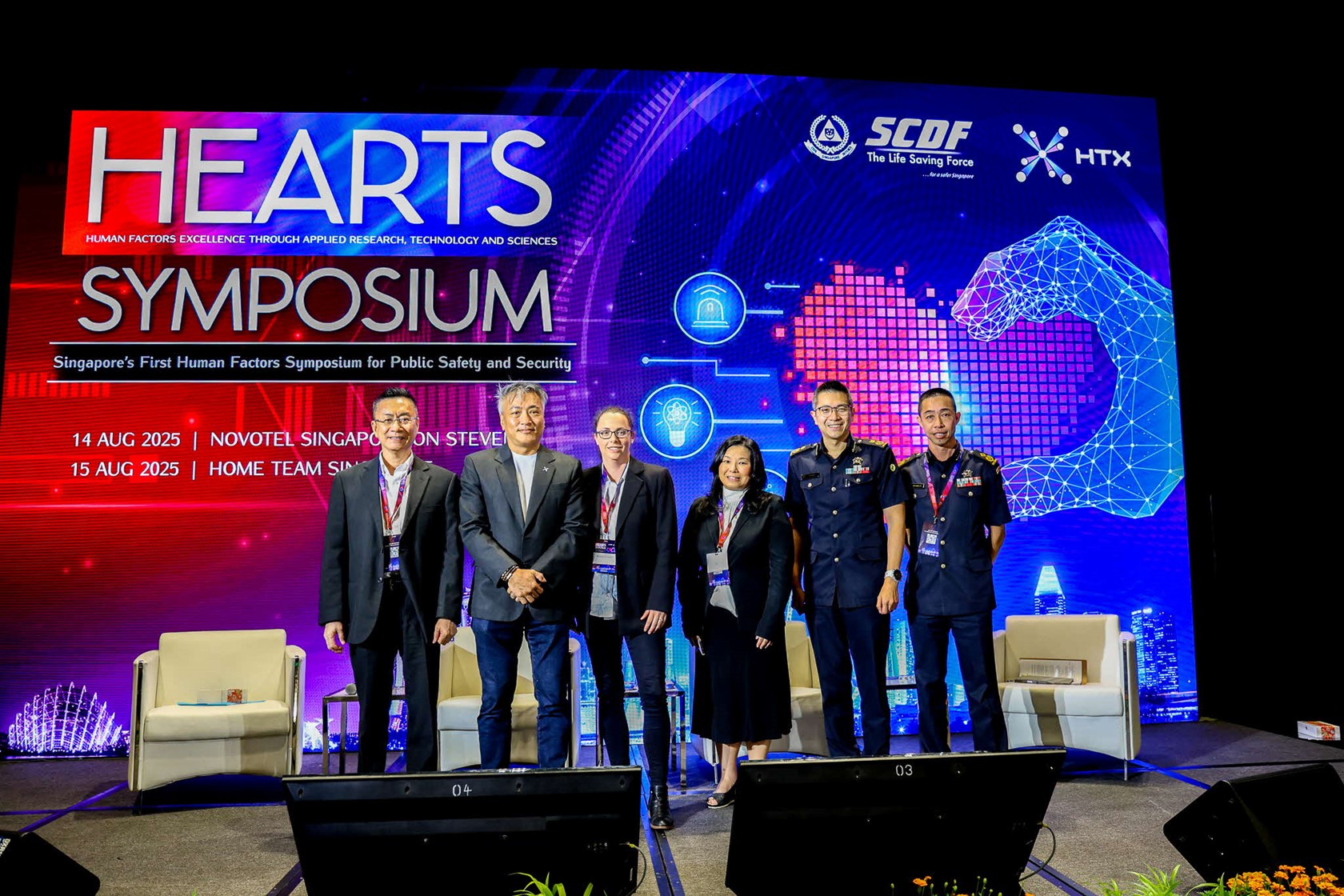 (From left) Ying Meng Fai; Ng Yeow Boon; Prof Grace Vincent; Dr Jamie Ng; Deputy Commissioner Daniel Seet; Assistant Commissioner Chew Keng Tok at the HEARTS Symposium 2025. (Photo: HTX/Dorcas Yang)
(From left) Ying Meng Fai; Ng Yeow Boon; Prof Grace Vincent; Dr Jamie Ng; Deputy Commissioner Daniel Seet; Assistant Commissioner Chew Keng Tok at the HEARTS Symposium 2025. (Photo: HTX/Dorcas Yang)
As threats to public safety grow increasingly complex and unpredictable, the Home Team’s responses must likewise evolve in sophistication and be anchored firmly in robust human factors research, said Minister for Law and Second Minister for Home Affairs Mr Edwin Tong at the inaugural HEARTS (Human Factors Excellence through Applied Research, Technology, and Sciences) Symposium.
Mr Tong was the guest-of-honour for the event, which was held from 13 to 14 August at Novotel Singapore on Stevens. Jointly organised by HTX and the Singapore Civil Defence Force (SCDF), this first-of-its-kind platform in Singapore was focused on advancing the integration of human factors in public safety, and was attended by local and international participants, from Home Team frontline officers to public safety and research professionals.
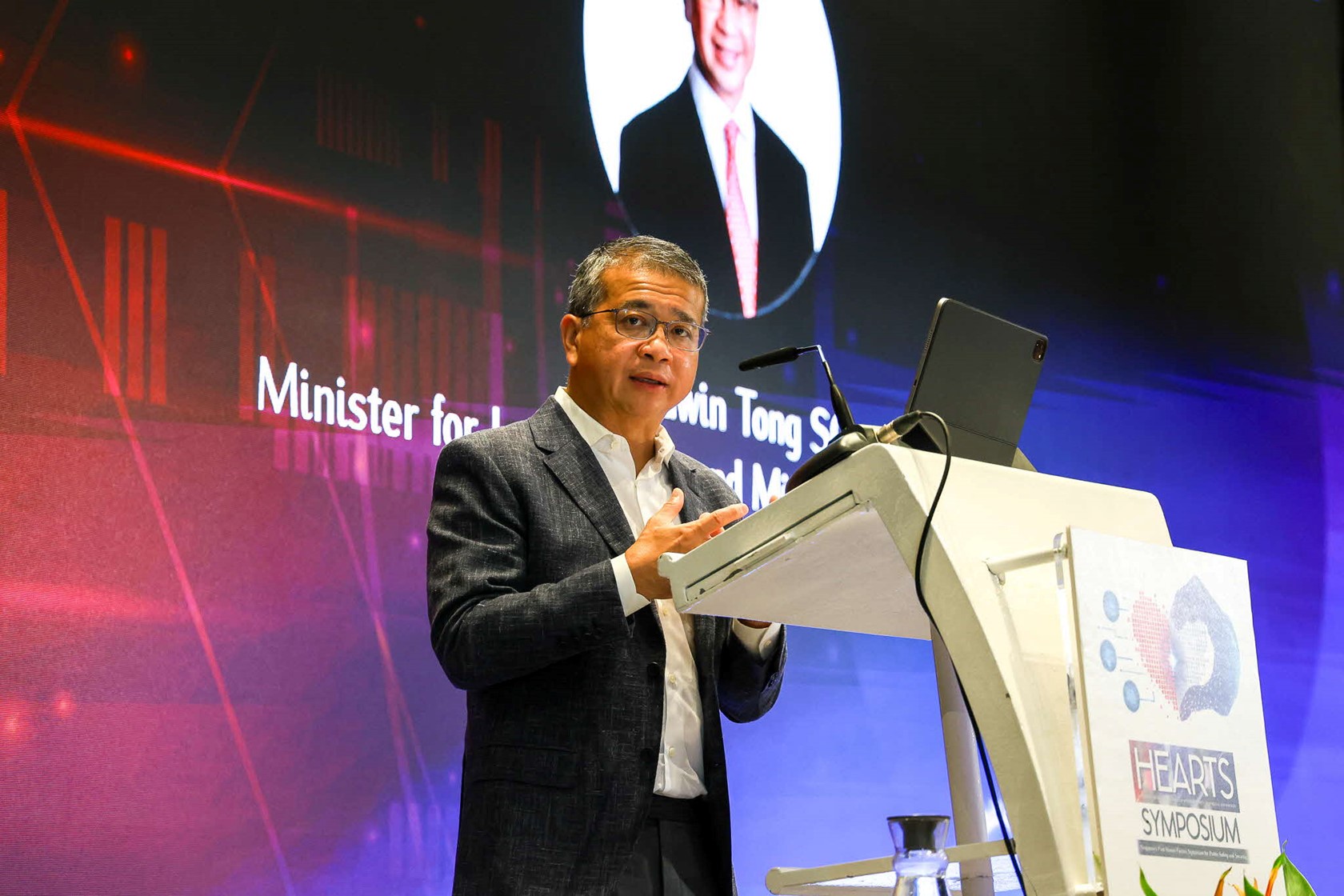 Mr Edwin Tong at the launch of the HEARTS Symposium 2025. (Photo: HTX/Dorcas Yang)
Mr Edwin Tong at the launch of the HEARTS Symposium 2025. (Photo: HTX/Dorcas Yang)
With rapid advancements in technologies such as Artificial Intelligence (AI), the field of human factors is crucial in reducing errors, enhancing safety and improving operational effectiveness. This was the overarching message of keynote speaker Dr Jamie Ng, the Division Head of Advanced and Sustainable Manufacturing at A*STAR’s Institute for Infocomm Research. Researchers from the institute recently collaborated with HTX’s Robotics, Automation and Unmanned Systems (RAUS) Centre of Expertise (CoE) to develop a robotic platform capable of conducting autonomous patrols at Changi Airport.
During her presentation, Dr Ng stressed the importance of establishing sturdy guardrails and maintaining transparency in the development of embodied AI, citing cases where AI agents have lied, replicated themselves or attempted to blackmail developers. Such standards can be implemented by “interdisciplinary teams combining AI and human factors experts” that also support training and manage change.
“Humans must be first in AI and robotics development. We must ensure that humans maintain agency to continue human potential,” she said.
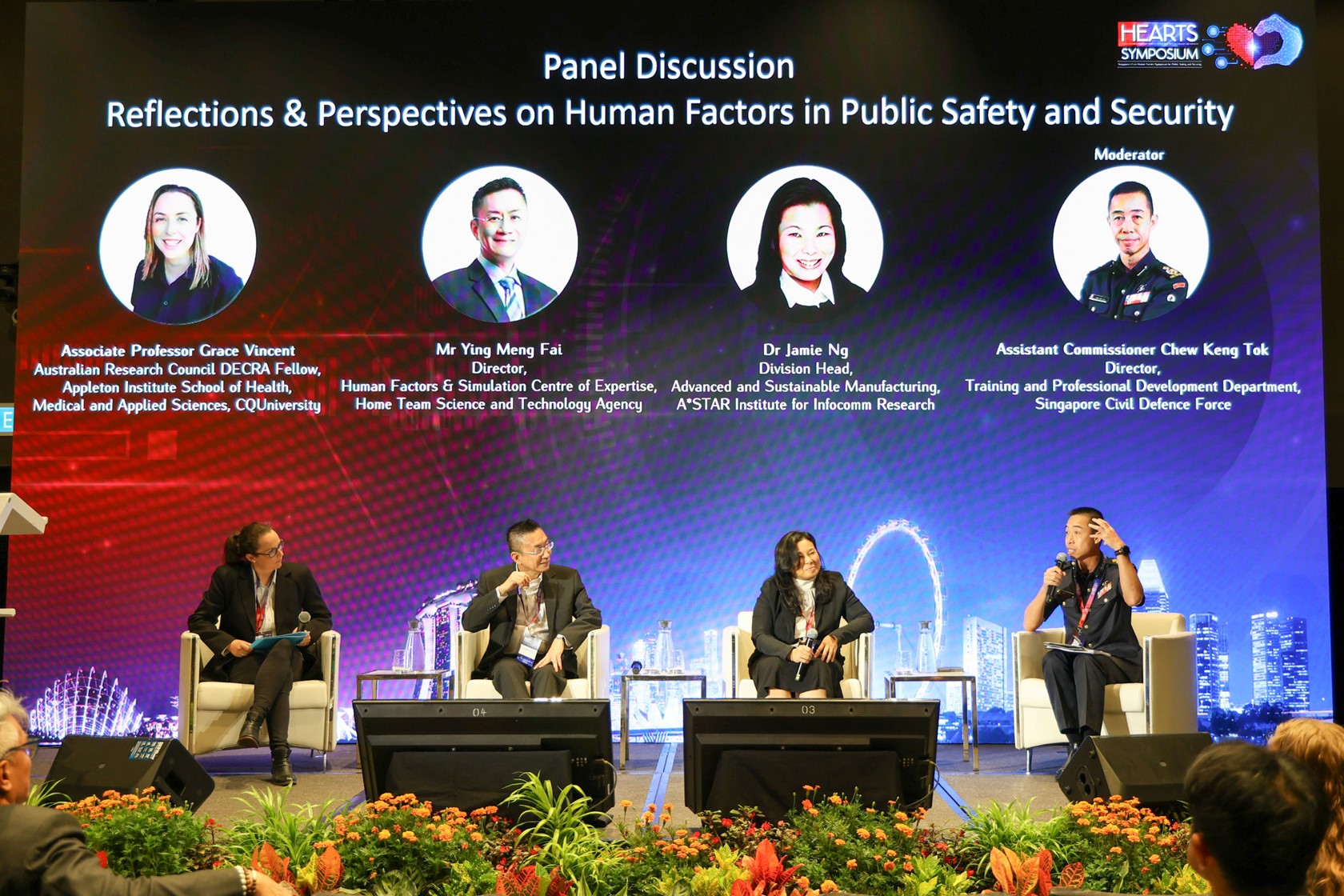 Panellists at the HEARTS Symposium 2025 discussed issues from AI literacy to misconceptions surrounding human factors in public safety. (Photo: HTX/Dorcas Yang)
Panellists at the HEARTS Symposium 2025 discussed issues from AI literacy to misconceptions surrounding human factors in public safety. (Photo: HTX/Dorcas Yang)
Besides mitigating risks associated with emerging technologies, human performance also enhances the abilities of public safety professionals and can help to improve operational outcomes. During his presentation, Ying Meng Fai, Director of the Human Factors & Simulation CoE at HTX, outlined the agency’s strategies for optimising human performance in public safety across four interlinked domains – physical readiness, cognitive capacity, human performance recovery as well as system integration.
He highlighted that in the face of multi-faceted threats, enhancing performance is key to mission success, workforce sustainability and public trust.
“The most highly rated asset is the first responder, the officer on patrol, the analyst at their desk, the operator in the field, the mission maker at the command centre,” he said.
“Optimising human performance is not a luxury, it is a necessity.”
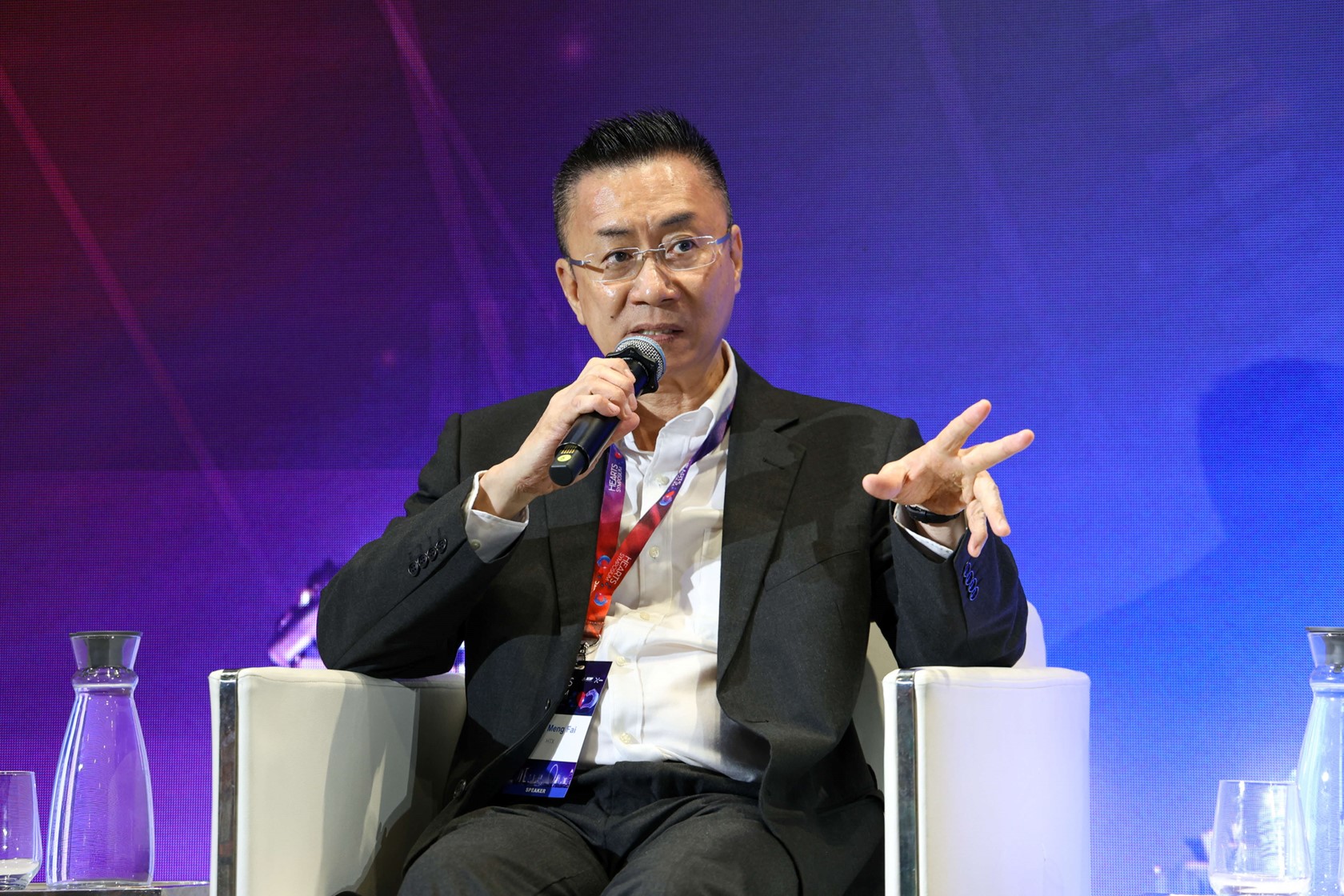 Ying Meng Fai, Director of HTX’s Human Factors & Simulation CoE weighing in at the panel discussion. (Photo: HTX/Nicole Lim)
Ying Meng Fai, Director of HTX’s Human Factors & Simulation CoE weighing in at the panel discussion. (Photo: HTX/Nicole Lim)
His sentiments were echoed at a panel discussion that broached topics including AI literacy and organisational resilience. Here, panellists addressed misconceptions related to human factors and shared insights pertaining to its application in the context of public safety. Among them was Associate Professor Grace Vincent of Appleton Institute, School of Health, Medical and Applied Sciences, CQUniversity, who had earlier delivered a presentation on tackling fatigue in emergency services.
She emphasised that organisations should take the lead in safeguarding frontline officers’ well-being.
“Ultimately, we want our emergency services staff to be safe, to be healthy, and to be doing a great job. The best way to do that is to protect their health… and really having that culture from the top down,” said Prof Vincent.
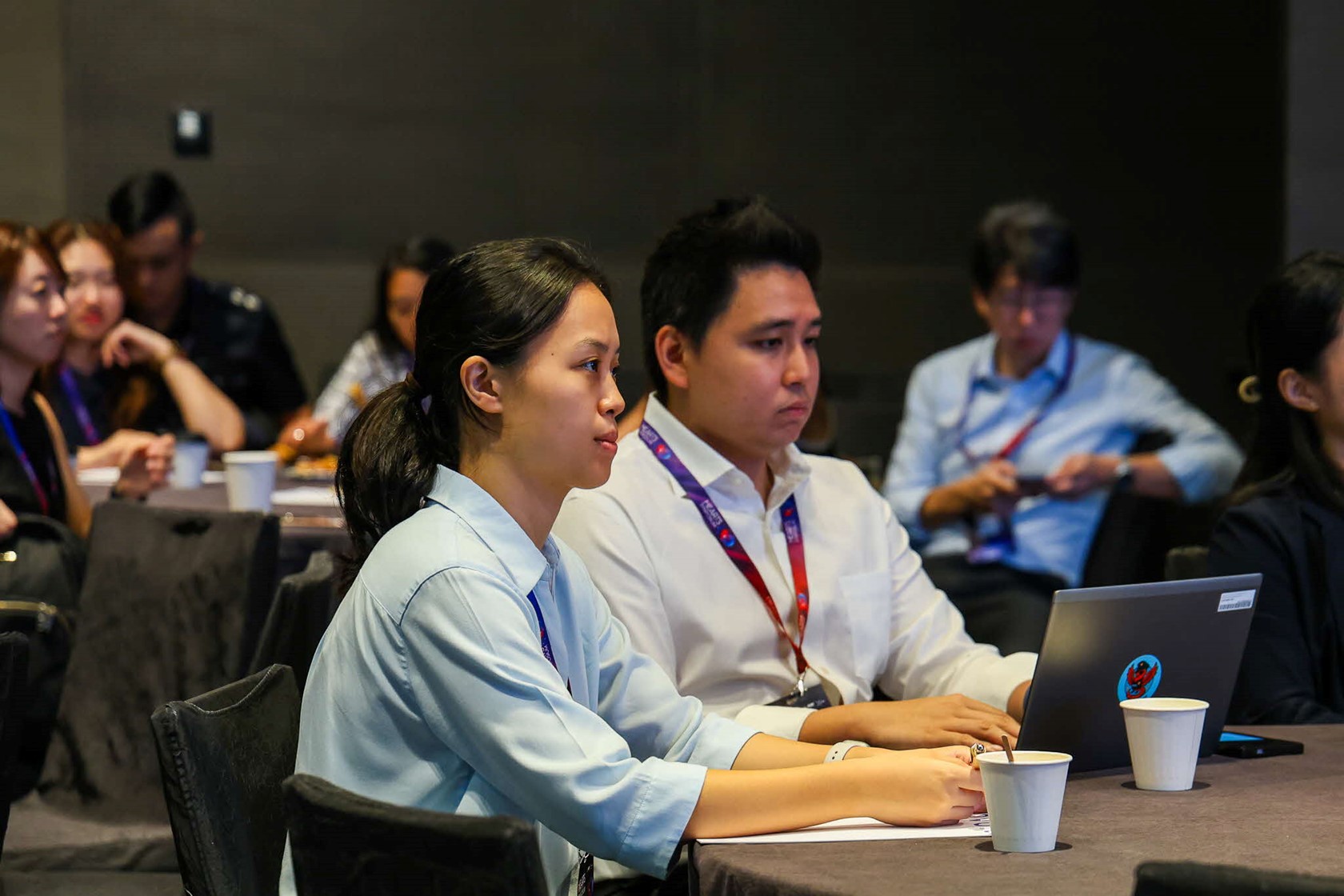 Participants at a workshop held during HEARTS Symposium 2025. (Photo: HTX/Dorcas Yang)
Participants at a workshop held during HEARTS Symposium 2025. (Photo: HTX/Dorcas Yang)
The symposium also featured breakout workshops covering the areas of implementation science, negotiation and de-escalation, as well as recovery science and performance optimisation. It was capped off by visits to HTX’s laboratories and research facilities – including the Xtend lab at HTX HQ and the Emergency Responders’ Fitness Conditioning and Enhancement Lab (EXCEL) at the Civil Defence Academy – as well as a networking session.
Among the participants who left with actionable insights was Albert Zehetner, Counsellor for Defence Science and Technology at the Australian High Commission Singapore.
“My key takeaways were the importance of ensuring human primacy in AI development, as well as the nexus between robotics and AI,” he said.
“It’s very important for the Home Team to be a leader in championing human factors in public safety.”

